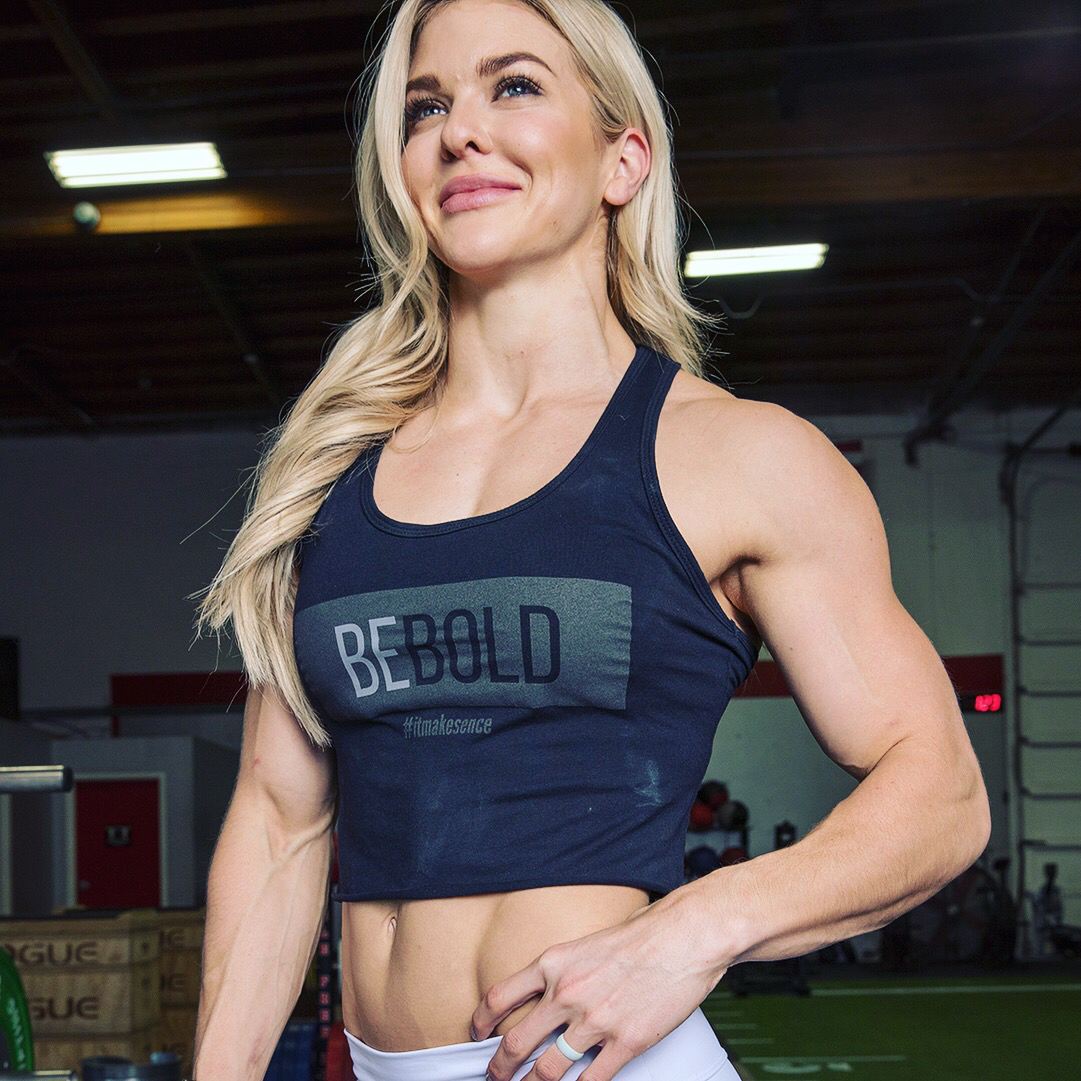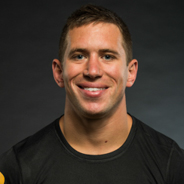When the first two 2016 Regional events were announced—the snatch ladder and Regional Nate—the hosts of the “Update Show” had a hard time maintaining their composure.
“Just a couple of years ago, these two events we know about would have been aggressive for the Games,” Sean Woodland said.
“Dave Castro, in his old age, has lost mind,” Pat Sherwood said.
“These events, had you told me, ‘Hey, this isn’t Day 1 of regionals, this is actually a leak of the 2016 Games events,’ I would have been like, ‘Wow, we’re really stepping it up,’” Sherwood said, “but at the regional level? I can’t wait.”
“They are pulling no punches with the complexity of the movements, the skill required to complete these workouts and the loading with the barbell,” Tommy Marquez said.
Marquez said there were probably some people who might gripe about these events, but he predicted they wouldn’t be the people in contention by Day 3.
“If you have a serious problem with this, you don’t understand what it takes to make it to the Games,” Marquez said.
He was exactly right.
Heavy Fun
Rasmus Wisbech Andersen, who finished second overall, said he loved the regional events.
“It’s been awesome,” he said on Day 3, before the last event of the competition.
“The workouts are so much more fun than last year,” Andersen said. “The first workout (which Andersen won) was a snatch ladder, which is low intensity. Last year, it was Randy—your heart rate is out of the roof. This was an easy start, the workout was more fun. They are all fun,” Andersen paused, thinking about that statement.
“Well, they all suck, but fun meaning you can look around, not dying like Randy,” he said, laughing.

The weights on the snatch ladder in Event 1 would have most average CrossFit athletes stuck at the first bar (185/135 lb.), but 10 of the women and 13 of the men at the California Regional cleared the 30-snatch ladder under the 11-minute time cap.
“I thought it was cool that weights were heavier,” Brooke Ence said about the regional events. “At lot of people were surprised, but it was time.”
Secret Ingredient
“I really like (the events),” Kyle Kleinschmidt, of Diablo CrossFit Anejo said. His team won four of the nine events and finished first overall. He said his team works hard to make sure they focus on a wide range of skills: from gymnastics to strength to skill work.
“I like how there were some (events) with heavy weights, some with sprints … they did a good job testing our engine, and our motor and working as a team,” he said.
“I like how they added the minimum standard, but not for the first day,” Kleinschmidt continued. “It’s hard because you want to test people, but you want to allow people who are still working on their skills to compete."
Kleinschmidt competed on the Diablo CrossFit team at the Games in 2015. He said he thinks the 2016 Regional competition did a good job exposing weaknesses.
“You can’t hide a weak link at the Games,” he said.
The top male finishers had something in common other than work capacity and mental toughness. Like Josh Bridges, who won the men’s individual competition, all three Diablo men showed up to the California Regional sporting elegant mustaches.
Kleinschmidt said they’d been working on the facial hair for six weeks as a team-building exercise, and as a way to get the rest of the gym involved in the process.
“Jamie (Lee, their team captain), took some convincing, but he finally agreed to join team mustache,” Kleinschmidt said.
Forget knee sleeves and physio tape—look for mustaches to appear as the must-have accessory at your CrossFit gym in the coming months.

Strict Standards
If Event 1 was heavy, Event 2, Regional Nate, was a test of body-weight gymnastics movements.
Ben Alderman, who finished ninth overall but ended Day 1 in first place, said an injury last year unexpectedly helped him prepare for the event.
“The strict movements in Regional Nate might be a curveball for some, but I had surgery in July (on a torn labrum), so I have been doing strict movements,” Alderman said.
While the regionals are a good way to select athletes for the Games, Alderman said he thinks regional placement is not always a predictor of the Games standings.
“There are people who take fifth at regionals and ruin people at the Games,” he said.
“Event 2 tested endurance over fitness with all of the strict movements,” Ence, who took 12th in the event, said. “I was really intimidated at first, but really proud of myself after I tried it. Like Dave (Castro) says, the programming is designed to separate Games versus regional athletes.”
Ence finished the weekend in sixth place, missing her chance at a second Games appearance in 2016.
Leave Nothing to Chance
Throughout the regional weekend, Marcus Filly showed the kind of consistent performance needed to qualify for the Games. His worst finish was 15th on Event 4 and he took first on Event 3—his only first-place finish.
“I immediately went into thinking man’s mode, thinking about how to attack each event,” Filly said when he learned about the regional events. “I thought everything was fair and balanced.”
He said he thinks those who rely on the luck of programming favoring their skills are making too much of a gamble.
“The programming usually only makes a difference for the fifth qualifying spot and I don’t want to leave it up to chance,” he said. Filly finished the competition in third, just 1 point ahead of fourth-place Christian Lucero.
Looking ahead to the Games, Filly said he’s noticed a shift to what he calls “classic CrossFit programming.”
“Couplets, triplets, and running. It makes me love the sport more and more,” Filly said. “We all got into CrossFit for the balance and to be prepared for everything.”
Do the Work
For the athletes who spent the year getting ready for this competition, the events were about what they expected.
Eric Miller, Becca Voigt’s husband, said she’s less beat up from this than from training.
Alessandra Pichelli took home two first-place finishes and placed third overall, and she said she thought the events were a good test of fitness.
“I thought the programming was really well rounded. It didn’t cater to smaller girls who are good at gymnastics or strong girls who are better with the strength,” she said.

One of the surprises of the weekend was five-time Games athlete Dan Bailey taking seventh place, and missing his chance at a sixth consecutive Games appearance.
At the end of Day 3, when he realized his shot at a sixth Games appearance was slipping from his grasp, Bailey was philosophical about his fate.
“(The programming) was a night and day difference from last year,” Bailey said, “but who cares what it is? You have to do it anyway.”








